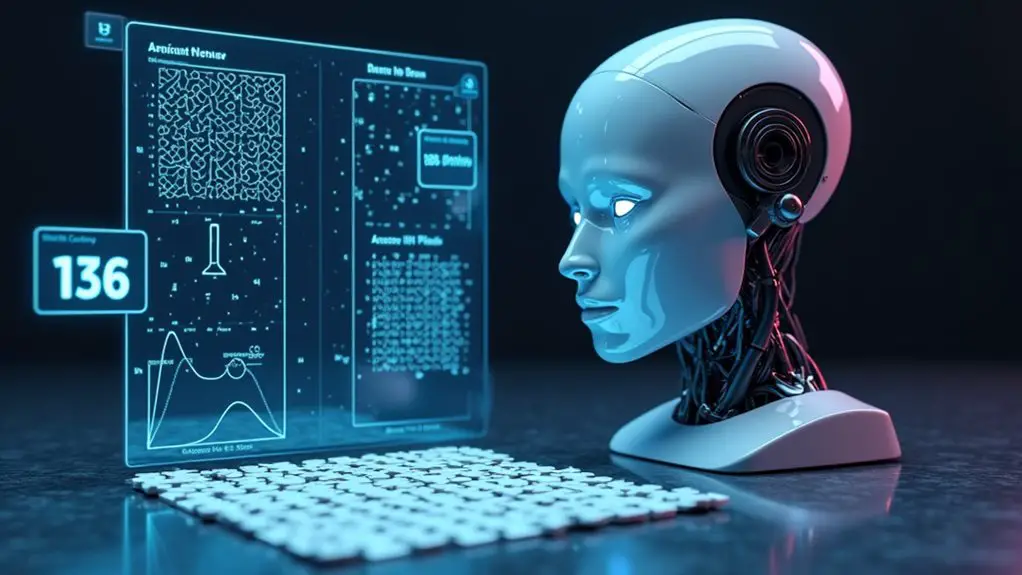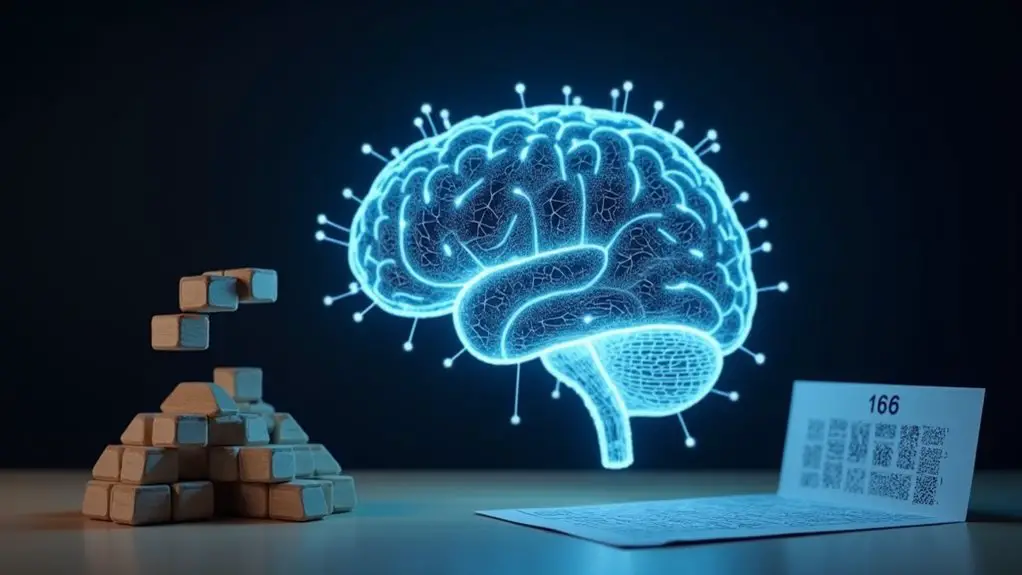AI has achieved a score of 136 on the Mensa Norway IQ test, outperforming 98% of human test-takers. This represents a significant advancement in artificial intelligence capabilities, particularly in logical reasoning and pattern recognition. The average human IQ is 100, highlighting the substantial performance gap. While AI excels at specific cognitive tasks, it still lacks human intuition and emotional intelligence. This development raises important questions about future workforce dynamics and the changing nature of intelligence.

While humans have long prided themselves on their cognitive abilities, recent tests show that artificial intelligence has reached a remarkable milestone. An AI system has achieved a score of 136 on the Mensa Norway IQ test, outperforming 98% of human test-takers. This achievement marks a significant advancement in artificial intelligence capabilities, particularly in logical reasoning and pattern recognition.
The Mensa Norway test, known for its challenging questions that assess logical thinking, has become an important benchmark for measuring cognitive abilities. You might find it surprising that AI can now excel at tests designed to measure human intelligence. The system’s performance demonstrates its advanced capacity to identify patterns and apply logical reasoning to complex problems.
AI’s mastery of the Mensa test challenges our notion of intelligence, revealing machines’ growing capacity for complex reasoning.
This achievement has substantial implications for the future of AI development. When you compare the AI’s score to the average human IQ of 100, you can see the considerable gap in performance for these specific cognitive tasks. The AI consistently maintains high accuracy throughout the test, whereas human performance often fluctuates due to fatigue or attention lapses. Such advancements align with expert predictions that estimate a 50% chance of achieving high-level machine intelligence by 2047.
Despite these impressive results, AI still faces limitations in areas requiring common sense and real-world application. This brings to mind cases where AI has found unexpected solutions to problems, such as the top-heavy creatures designed to jump high that instead developed a strategy of falling and spinning to register technically high jumps. You should note that high IQ scores don’t necessarily translate to general intelligence across all domains. AI excels in data analysis and pattern recognition but lacks human intuition and emotional intelligence.
As AI continues to advance, you’ll likely see more capabilities that match or exceed human performance in specific tasks. This raises important questions about the future workforce and the changing nature of human employment. Many routine cognitive jobs could become automated, requiring workers to develop new skills.
The development of highly intelligent AI also brings concerns about safety and ethical alignment. You need to reflect on the importance of proper regulations and human oversight to guarantee AI systems act in ways beneficial to society.
As these technologies progress, striking the right balance between innovation and responsible development remains vital for maximizing AI’s benefits while minimizing potential risks.
Frequently Asked Questions
What Specific AI Model Achieved This High IQ Score?
OpenAI’s “o3” language model achieved the 136 IQ score on the Mensa Norway test.
You can identify it as part of OpenAI’s proprietary “o-series” of large language models. This score places it above approximately 98% of the human population on standardized IQ metrics.
The model underwent multiple test runs, with its final score calculated using a seven-run rolling average to guarantee accuracy and consistency in its performance measurement.
How Does AI Process Abstract Reasoning Questions Differently Than Humans?
AI processes abstract reasoning questions through logical algorithms without emotional bias, while you rely on intuition and experience.
Unlike your adaptable thinking that incorporates context and empathy, AI depends strictly on pattern recognition from training data.
You can make creative mental connections across domains, whereas AI excels at processing vast amounts of information but struggles with unprogrammed scenarios.
Your reasoning flexibly shifts with context and emotions, while AI maintains unwavering focus but lacks your cognitive adaptability.
Could AI Performance on IQ Tests Improve Further With Time?
Yes, AI performance on IQ tests will likely improve further over time.
You’ll see advancements driven by better algorithms, increased computational power, and more diverse training data.
As machine learning techniques evolve, AI systems can develop enhanced pattern recognition abilities and more sophisticated problem-solving approaches.
These improvements will help AI tackle abstract reasoning tasks with greater accuracy.
The collaboration between psychologists and data scientists will also refine how AI processes cognitive challenges, potentially closing the remaining gaps with human performance.
Do Other IQ Tests Show Similar AI Advantages Over Humans?
Yes, AI shows similar advantages on various IQ tests.
You’ll find that advanced AI systems perform exceptionally well on multiple intelligence assessments, including Raven’s Progressive Matrices and certain verbal reasoning tests.
However, performance varies greatly across different test types.
AI typically excels in pattern recognition and mathematical reasoning but may struggle with tests requiring cultural knowledge or contextual understanding.
These differences highlight the specialized nature of AI intelligence compared to human general intelligence.
What Are the Ethical Implications of AI Surpassing Human Intelligence?
When AI surpasses human intelligence, you’ll face significant ethical challenges.
These include potential loss of human control over AI systems and risks to your autonomy and privacy.
You’ll need to contemplate how superintelligent AI might disrupt social structures and redefine humanity’s purpose.
Ensuring AI aligns with human values becomes critical to prevent unintended harm.
The development of robust ethical frameworks will be essential to maintain human dignity while allowing beneficial AI advancement.





